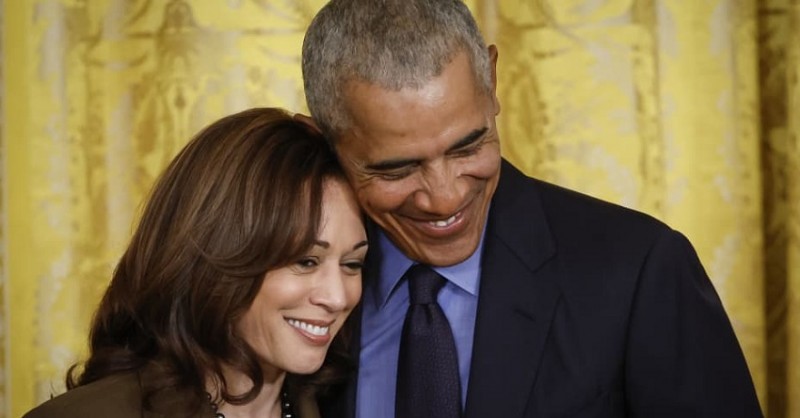
Kamala Harris’s campaign for the presidency is not focusing on her identity as a trailblazing woman of color, even though her candidacy has historic significance. Unlike her Republican opponent, Donald Trump, who has launched racist and sexist attacks, Harris has chosen not to highlight her race or gender prominently.
In her recent acceptance speech at the Democratic National Convention, Harris refrained from discussing her identity directly. This choice reflects a broader moment in American politics. While Barack Obama's landmark keynote address in 2004 reshaped discussions about race and power, Harris's approach signifies a shift towards allowing her actions to speak louder than her identity.
Harris’s close friend, California Senator Laphonza Butler, who is the only Black woman in the Senate, explained that Harris doesn’t need to overtly display her race or gender. “The world will never let you forget that you are a Black woman,” Butler noted. “The way she approaches her role is bigger than just her race or gender.”
Many supporters, including those from Harris's sorority Alpha Kappa Alpha and her alma mater, Howard University, shared a sense of pride in her achievements. They appreciated her focus on universal issues like reproductive rights, while also recognizing her identity.
Harris and her running mate, Minnesota Governor Tim Walz, are campaigning on broad themes of freedom and opportunity, rather than focusing solely on identity politics. Their message emphasizes leadership for "all Americans" and a commitment to a diverse democracy.
In her acceptance speech, Harris spoke about an inclusive vision for America, stating, “I see an America where we hold fast to the fearless belief that built our nation and inspired the world.” She stressed the importance of unity and shared values, rather than focusing on divisions.
This shift represents progress, but it also highlights a complex reality. Candidates no longer need to conform to narrow identity boxes to gain electoral support. However, they may also struggle to address race and gender issues without facing backlash. This duality has been a feature of American politics, and it remains prominent today.
Former Illinois Senator Carol Moseley Braun, the first Black woman elected to the Senate, pointed out that emphasizing one's identity can sometimes lead to criticism. “Talking about being the first Black person to do something can backfire,” she said. “It’s often better to focus on broader issues.”
Obama also navigated these challenges during his presidency. While his speeches often avoided explicit discussions of race, his rhetoric aimed to foster hope and unity. His approach, though criticized by some for not addressing racial issues directly, was seen as a means of promoting a collective American identity.
Harris’s campaign seems to be learning from Obama’s experience, choosing a strategy that blends identity with a broader vision for the country. As she campaigns, she continues to address issues disproportionately affecting communities of color, such as maternal health and abortion rights.
Her approach reflects a pragmatic understanding of American diversity. As a potential president, Harris will need to balance unity with the realities of race and ethnicity. Her policies are likely to address these complexities, even if her rhetoric does not always focus on them.
In summary, Kamala Harris’s candidacy illustrates the evolving nature of identity in American politics. While the focus may shift from overt identity politics to a broader vision of unity, the challenges and nuances of representing a diverse nation remain significant.